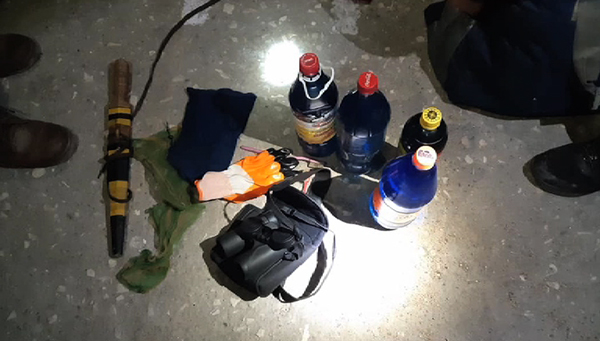 With Agriculture Ministry giving Cordyceps collection the go-ahead as usual, authorities in Bumthang are setting up checkpoints along the entry points of Cordyceps collection sites to carry out flu screening and to monitor illegal collectors.
With Agriculture Ministry giving Cordyceps collection the go-ahead as usual, authorities in Bumthang are setting up checkpoints along the entry points of Cordyceps collection sites to carry out flu screening and to monitor illegal collectors.
However, there is scepticism about how such measures would help in keeping at bay the risks of contracting COVID-19 from a foreign land as many Bhutanese collectors are said to illegally come in contact with foreigners along the northern borders during the Cordyceps harvesting season.
Two checkpoints, one at Zangtherpo, just above Chhoekhor Gewog office and another at Thowadrak Zam in upper Tang have been installed. Upon reaching the gates, Cordyceps collectors will be asked to produce permits and flu screening will be conducted. The barriers will also be used to monitor the movement of illegal collectors. Each year more than a hundred collectors illegally enter Bumthang’s Cordyceps collection sites.
“All sorts of people, those having permits and those without any, enter our collection sites on the pretext of dropping ration for the collectors up in the mountains. So, we don’t really know what these people are doing up there and with whom they are meeting. It is very difficult for soldiers and foresters to monitor the whole situation out there. For instance, Bumthang alone has 67 campsites in Chhoekhor Gewog’s collection sites. This is worrying because this is a very huge figure for a limited number of foresters and the chance of contracting COVID-19 cannot be written off. So we are implementing strategies such as setting up checkpoints like this,” said Pasang Dorji, the Bumthang Dzongda.
“In the past, we used to issue the Cordyceps harvesting permits from the Gewog office in a large gathering but this year, due to the COVID-19 situation, we are going to distribute the permits by going to individual villages as there won’t be many people in such settlements which would be easier for us to implement physical distancing measures,” added Pema Doengyel, the Chhoekhor Gewog Gup.
With limited manpower to monitor the collectors, it is set to become increasingly challenging for the authorities to keep track of all the collectors. For instance, there are only about 30 foresters to monitor more than 2,000 collectors of Bumthang and Wangdue Phodrang.
“Some people have been asking us how safe it is to go for Cordyceps harvesting this year with lots of people going to the northern borders. The Gewog administration is equally worried because every year, at least 1,000 people go for harvesting, so if foreigners also come for collection along the borders, there are high chances of our people coming in contact with them. We are worried that our collectors might import COVID-19 through the northern borders,” the Chhoekhor Gup added.
However, the Foreign Minister, during a press briefing yesterday said that the cabinet is aware of the issue and had discussed it at length. Lyonpo also added that collectors should practise COVID-19 preventive measures such as physical distancing and washing hands while they are in the mountains harvesting the fungi.
“The cabinet held a comprehensive meeting on it. We have trained over 300 foresters to be deployed along the northern borders during the harvesting period. We are making arrangements for the deployment. Moreover, our soldiers will also help in ensuring that there is no contact between our collectors and foreigners,” said Dr Tandin Dorji, the Foreign Minister.
However, in an interview via phone, the Agriculture Minister said that the pool of 300 foresters readied to be deployed at the collection sites is as usual and the ministry is trying to place more foresters for surveillance. He also added that the government is not sure if this would help in restricting the collectors from mingling with foreigners across the border.
“We have people patrolling the southern borders as well, so we will see if we have enough manpower to be deployed in the north but we are going to send at least 300 personnel. We don’t know if we will be able to monitor the situation and the collectors up north but we are going to try and we can’t guarantee that it is going to be absolutely safe. If collectors don’t cooperate and comply with the guidelines, all the efforts put in by the government can go down the drain and there are high chances of this whole monitoring and surveillance system becoming a failure,” said Yeshey Penjor, the Agriculture Minister.
Lyonpo also said that the ministry has allowed Cordyceps collection as usual amid the coronavirus pandemic as thousands of highland communities in Bhutan depend on the sale of the fungi for their livelihoods. People from 18 Gewogs across the country go for Cordyceps collection annually.
Kipchu









